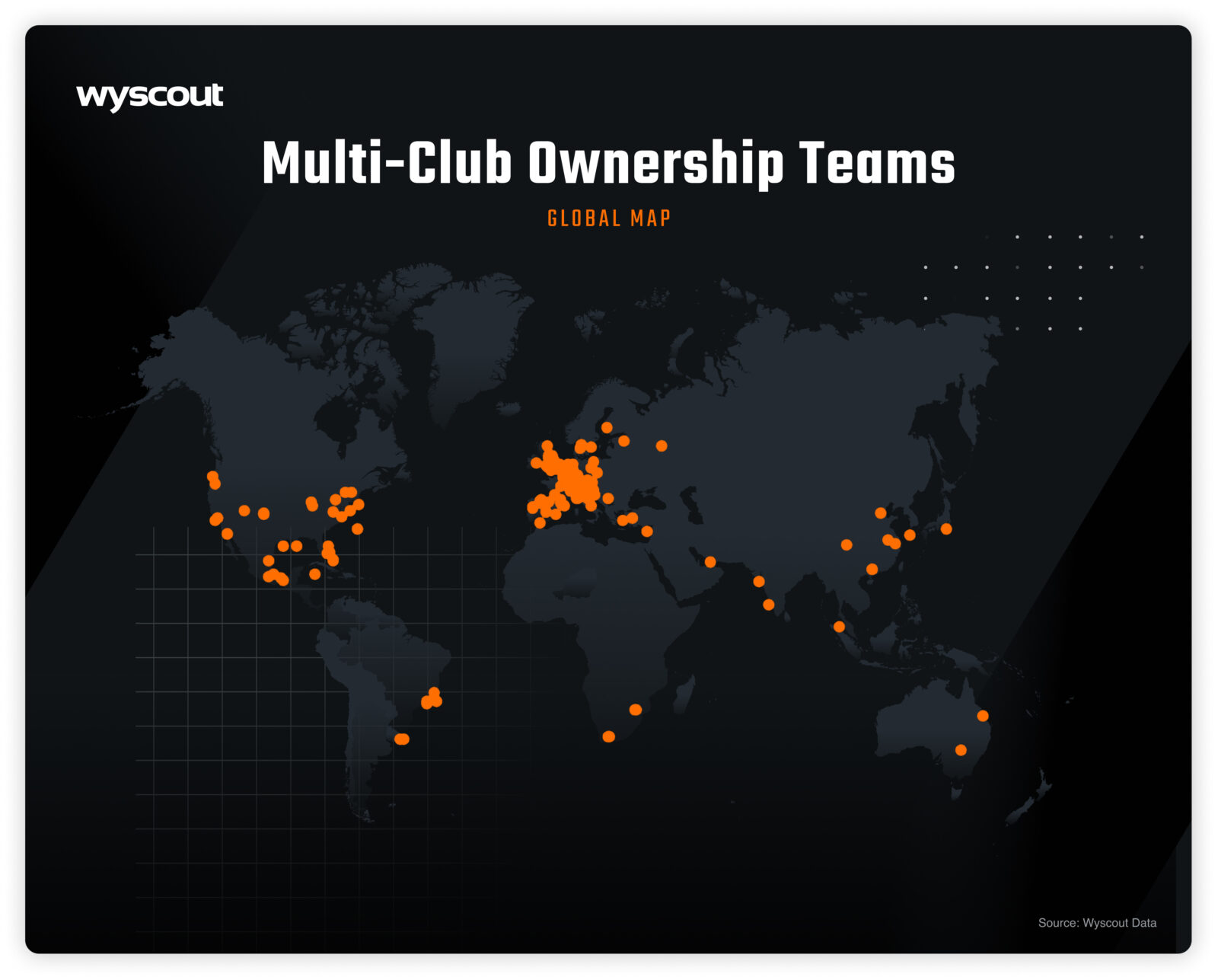Youth Scouting Trends: Impact of Multi-Club Ownership on Recruitment

In this limited series, we look into emerging scouting trends and how Wyscout’s Youth Competitions Pack can keep you ahead of the curve.

The potential advantages for MCOs are evident. Clubs operating within the same network can share scouting resources, exchange knowledge and best practices, enhance their brand and commercial bargaining power and, crucially, increase their maneuverability of player and staff movement. They can also bring much needed financial stability and support to clubs.
MCOs remain a hotly contested topic, however, with some critics raising concerns around the dilution of club identity and competitive balance.
What’s for certain though, is that the existence and growth of MCOs have an inevitable impact on scouting and recruitment strategies.

Recruitment strategies predicated on financial motivations are also prevalent among some MCOs. The business model consists of buying talents from around the world at a cheaper price, spreading them around clubs under the MCO umbrella, and then selling them on for a profit once they’ve had experience at a higher level.
Whether for long term planning to strengthen first team performance or for making a profit through player trading, the common denominator is a focus on youth. This underlines the importance of scouting youth competitions, both for MCOs looking for talents to develop or for clubs competing against MCOs to be the first to recruit rising young stars.
With Wyscout’s Youth Competitions Pack, clubs have access to a wealth of video footage and comprehensive data on thousands of promising young players, from 70+ competitions around the world covering U14 to U21 age categories.
Recruiters can gain data-driven insights about prestigious tournaments like the Copinha or COTIF, comparing players using the same metrics and KPIs as employed by first team analysts, to make better decisions faster and not miss out on the next big thing.


